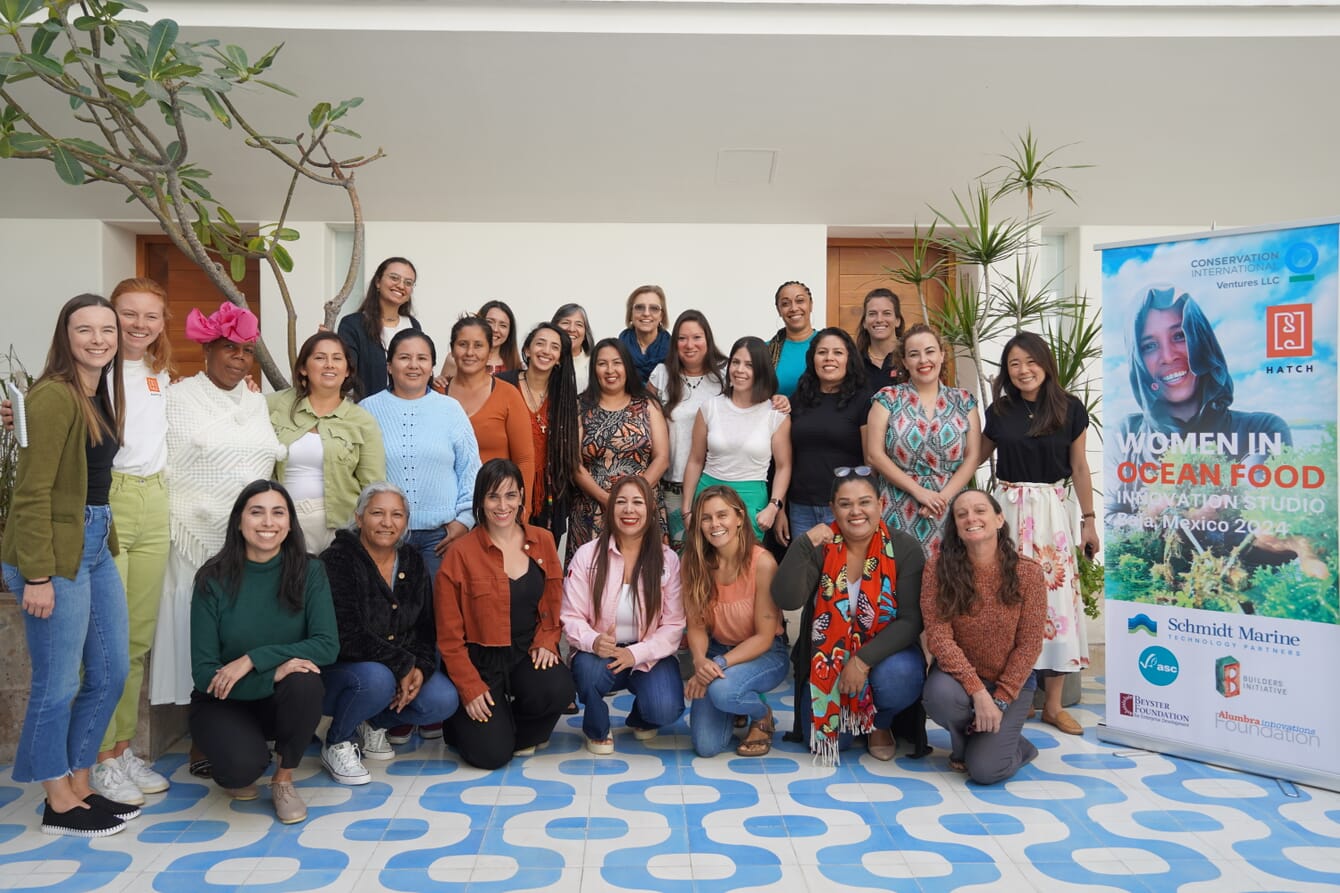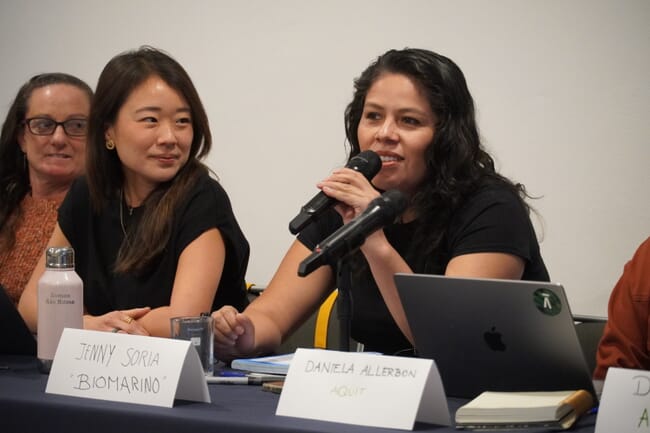
The studio kicked off in La Paz on 15 January and interested parties from the marine community are invited to join the community day that is part of the programme and takes place on 26 January
The community day offers members of the marine innovation community an opportunity to meet some of the most promising female-led ocean-focused startups from across Latin America
“Given that I live in the region, I am thrilled for La Paz to be the first location where we are hosting the Latin American version of The Women in Ocean Food Innovation Studio. This is an exceptional place where we can introduce the teams to other trailblazing aquaculture operations and a strong network of ocean-focused professionals. This unique programme is set to fuel entrepreneurship and make waves in the blue economy, creating positive ripples locally and across Latin America,” reflects Karlotta Rieve, project manager at Hatch Innovation Services, the consultancy branch of Hatch Blue.
Gracie White, of CI Ventures, who is equally excited about the prospect of the event, adds: “I have been looking forward to this programme for over a year now, ever since the success of the 2022 Women in Ocean Food Innovation Studio in Southeast Asia. That programme was the highlight of 2022, and I’m confident that the La Paz Innovation Studio will be the highlight of 2024. The community that forms over these two weeks is incredible – we all learn from each other just as much as we do from the mentors. There is something so special about bringing this number of female entrepreneurs together, all working to solve difficult problems facing our oceans and coastal communities - I can’t wait to dive in!”
A dozen routes to success
The studio aims to help female founders from 12 companies with the development of their businesses. Participants have been paired with industry leaders and introduced to dedicated venture philanthropists and impact investors. There is also the potential for companies to attract follow-on investment from Hatch and CI Ventures.
The 12 teams taking part in the studio consist of:
OPRE: an all-female oyster farming cooperative based out of La Paz, Mexico, which uses suspended sacks as their main cultivation method.
Tres Peces Pescaderia: The company that funded the first restaurant in Chile focused on responsible fisheries, and is now working on the country’s first mobile fishmonger who connects fishermen with markets.
Biomarino: Among other outstanding achievements, the Peruvian company has a solar-powered mobile laboratory for accelerated production of microalgae. The company is dedicated to finding technological solutions to ordinary and extraordinary aquaculture problems through a multidisciplinary approach.
Asofalipre: An all-female Colombian cooperative that is creating novel products from fish market by-products that would otherwise be considered waste.
Healthy Reefs for Healthy People: mariculture of Caribbean king crab for reef restoration and increased local incomes; operating out of Mexico, Florida, Guatemala, Belize and Honduras.
Thalasso: A Mexico and Norway-based startup that builds container-based micro-biorefineries to extract high value ingredients and create products from Sargassum seaweed, which is negatively impacting coastlines around the world, to create beneficial and commercial products.
Almejeras de Santa Cruz: a multi-generational shellfish and shrimp co-op, formed by women with a belief in the responsible use of resources, based on fair trade principles.
Belize Women’s Seaweed Farmers Association: A women-led, community-based non-profit that uses submerged farming techniques and actively supports its members in the development and marketing of value-added seaweed products through branding, microenterprises and collaborative initiatives.
Phycolabs: Hailing from Brazil, Phycolabs uses seaweed to create textiles and materials as an alternative to petrochemical products.
SnookEat: Based in La Paz, SnookEat aims to establish a hatchery and supply land-based systems suited for farming robalo (snook) – traditionally a wild-caught species, but which is now locally extinct.
Aquit: Based in Chile, Aquit is developing a preventative treatment for infections that replaces antibiotics, improves survival rates, and boosts natural immunity.
Blue Turtle Sustainable: another La Paz-based company, it fits LEDs made by Schmidt Marine Technology on gillnets to reduce sea turtle bycatch.

One of Soria's recent successes is a mobile hatchery designed to produce scallops and other aquatic species
Wayne Murphy, Hatch co-founder and partner, concludes: “This programme has grown from strength to strength since 2021. Three programmes and 45 participants later it is very evident, given the number of applications, that there is a real need and demand for this type of support. This initiative would not be possible without our key partner, Conservation International. I’m also so grateful to the people at iAlumbra, who have been incredibly supportive here in La Paz, the Aquaculture Stewardship Council, Builders Initiative, Schmidt Marine and the Beyster Foundation for sharing our plans and supporting our ambitions to drive increased gender diversity in the blue economy. I’m looking forward to expanding our plans further to include a focus on sub-Saharan Africa and Asia, as well as continuing our amazing Latin American journey."
How to join the Community Day
- Further details on the Community Day and how to sign up can be found here.
- To get in touch with Hatch Blue or Conservation International regarding the Women In Ocean Food programme, contact: wayne@hatch.blue or gwhite@conservation.org




